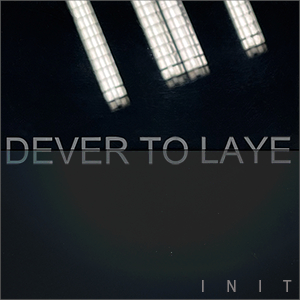(June 2010) The US continues to lead the way in the wave and EBM revival, with Medical Records from Seattle cutting its teeth with two releases. The new label has a reissue twist, looking to bring back not only minimal synth but cosmic disco and “future music.” Up first is a serious rarity, Deutsche Wertarbeit with Deutsche Wertarbeit, followed by italo disco big shot Alexander Robotnick and Ce N’est Qu’un Début.

Deutsche Wertarbeit is the alias of Dorothea Raukes, a frontrunner of German electronics and krautrock. Raukes is of an exclusive group, a female electronic enthusiast from the mid late 70’s; a group that could probably be counted on one hand. The self titled LP was first released on the infamous Sky Records in 1981 and has since been on the want-list of many a synthesizer zealot. Deutsche Wertarbeit have laid in relative obscurity for many years, but due to a stroke of luck the LP has been brought back to vinyl. Medical Records boss Troy Wadsworth came across Raukes’ son on a forum discussing the record, managed to get in touch with the artist and a serendipitous reissue was secured. The album is a blend of krautrock, electro and cosmic disco. Raukes’ sound is heavily influenced by the new wave movement across Europe and the UK, linked with the instrumental electronics of Tangerine Dream and Vangelis. The record opens with distorted vocoders dished on top of a lush base of spacey synth dabs. “Deutsche Walder” follows, a beautifully warm synthesizer piece that sounds like a lost soundtrack piece from a Bladerunner love scene. Raukes experiments with her sounds, staying in the synthesizer remit but sending the flows and movements in different directions. The flipside sees the arrival of the epic “Auf Engelsflügeln.” The album has an unmistakable sountrack quality, with “Auf Engelsflügeln” having a lonesome automobile motif embedded in the analogue reverberations. “Intercity Rheingold” follows in similar suit with “Der Grosse Atem” taking the listener on a final epic synthesizer odyssey.
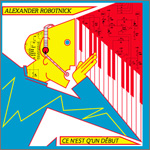
Alexander Robotnick seems like a strange follow up to relative obscurity of Deutsche Wertarbeit. Robotnick, aka Maurizio Dami, gained music acclaim after his 1983 hit “Problèmes D’amour.” The track found a new audience with I-F’s inspirational mix All Mixed Up in The Hague, a mix that I first came across as a University student and one which accompanied me on many a back road journey in the West of Ireland. Robotnick has been back on the electronic scene since 2000, but has released a mix bag of records since his return. Medical Records are looking back to what made Dami such a hit in the first place, focusing the album’s sound on his early 80’s pieces. The LP, originally released in 1984, opens with “Problèmes D’amour,” a rolling analogue track of clever catchiness. Robotnick’s diversity soon starts to lift its head on the LP, his abilities escaping some of the eclipsing effects of “Problèmes D’amour.” “Dance Boy Dance” is a wonderfully dark piece of italo, slipping in and out of new wave influences whilst maintaining an electro disco feel. The B-side sees this electro disco sound turned up a notch and pushed into regions of greater experimentation and obscurity with the absurd peaks and troughs of “Hola Macci Kola.” The title track, “Ce N’est Qu’un Début,” follows in a similar vein with vibrant synthesizer bars running alongside lyrical angst. The LP finishes on a lighter note, with the instrumental electro soundscapes of “Afrikan Kola.”
Medical Records have started out strong; the Alexander Robotnick release might have been a bit of a risk, but it contains tracks that are real classics and others that show what Dami is capable of. The Deutsche Wertarbeit can only be described as a triumph and a real achievement in audio archaeology. There’s a reason why labels are looking back at the pages of electronic music history for inspiration, because these records are truly inspiring. Alexander Robotnick lead the way in Italo, his sound making its way into electro, techno and house records to come. Deutsche Wertarbeit may be less known, due to obscurity and lack of output. Nevertheless the Deutsche Wertarbeit LP is one of these most stunning examples of synthesizer music this reviewer has heard in recent times, brimming over with a unique warmth and style. Let’s hope Medical Records can keep this level of quality up, as the archives of electronic music are packed up dusty gems and forgotten talent.
Both releases above are out now on Medical. [Purchase]








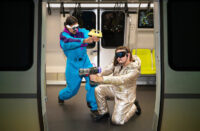



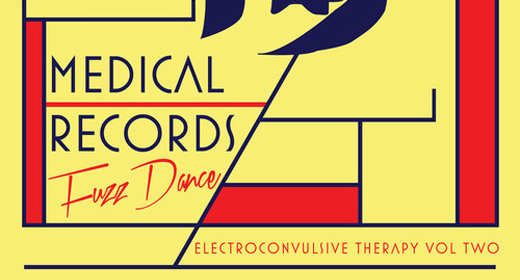


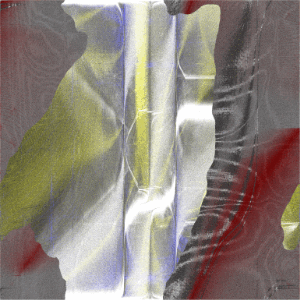


![Hasbeen :: Bunker Symphonies II (Clean Error) — [concise]](https://igloomag.com/wp/wp-content/uploads/2025/04/hasbeen-bunker-symphonies-ii_feat-75x75.jpg)
![Extrawelt :: AE-13 (Adepta Editions) — [concise]](https://igloomag.com/wp/wp-content/uploads/2025/04/extrawelt-ae-13_v_feat-75x75.jpg)
![Beyond the Black Hole :: Protonic Flux EP (Nebleena) — [concise]](https://igloomag.com/wp/wp-content/uploads/2025/04/beyond-the-black-hole-protonic-flux_feat-75x75.jpg)
![H. Ruine, Mikhail Kireev :: Imagined / Awakenings (Mestnost) — [concise]](https://igloomag.com/wp/wp-content/uploads/2025/04/h-ruine-mikhail-kireev-imagined-awakenings_feat2-75x75.jpg)


![Squaric :: 808 [Remixes] (Diffuse Reality) — [concise]](https://igloomag.com/wp/wp-content/uploads/2025/04/squaric-808-remixes_feat-75x75.jpg)
